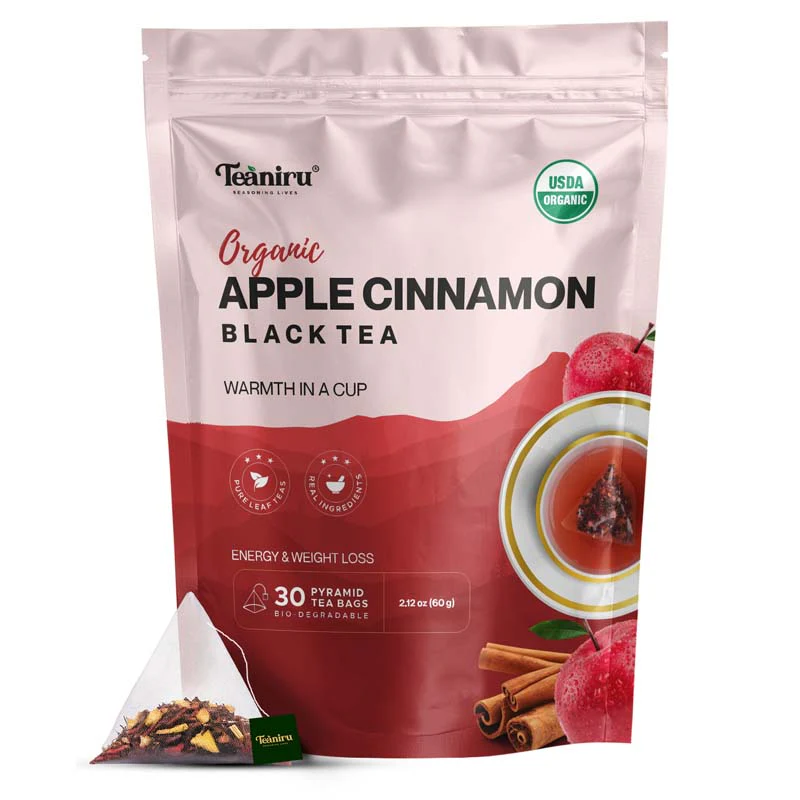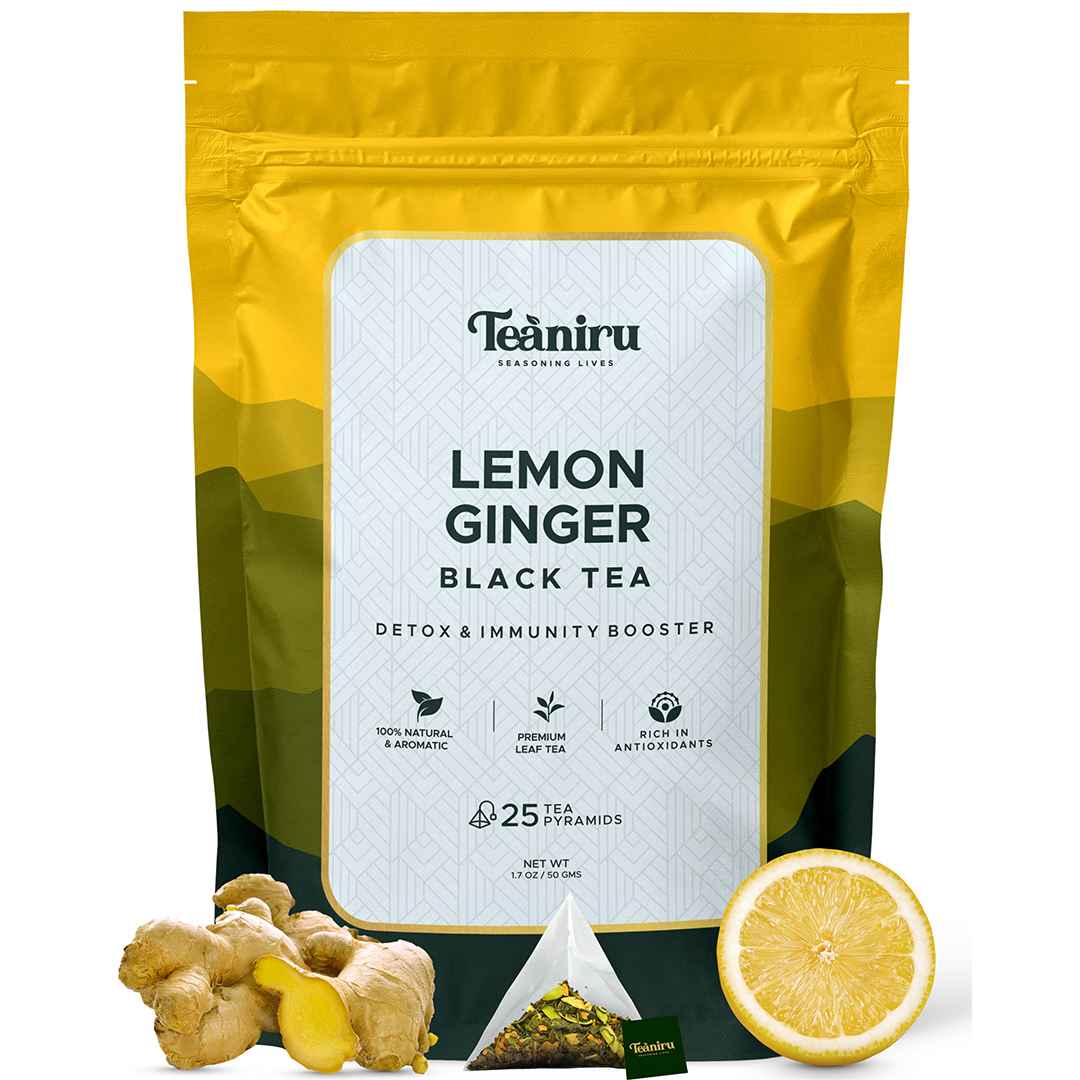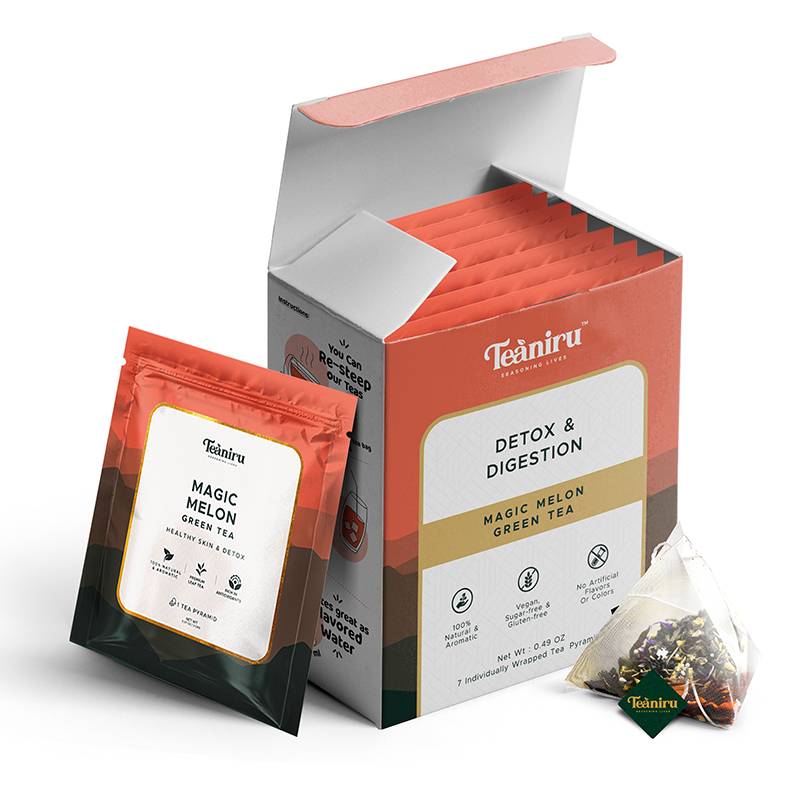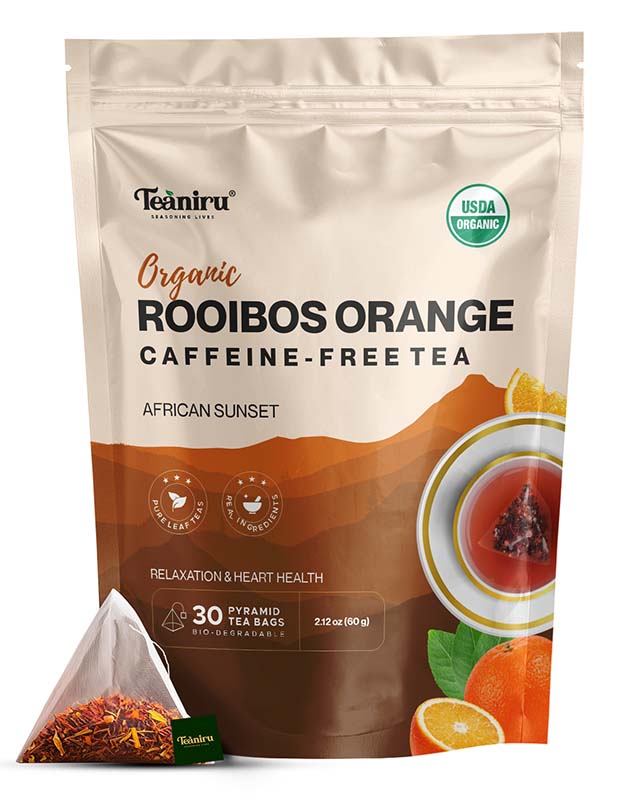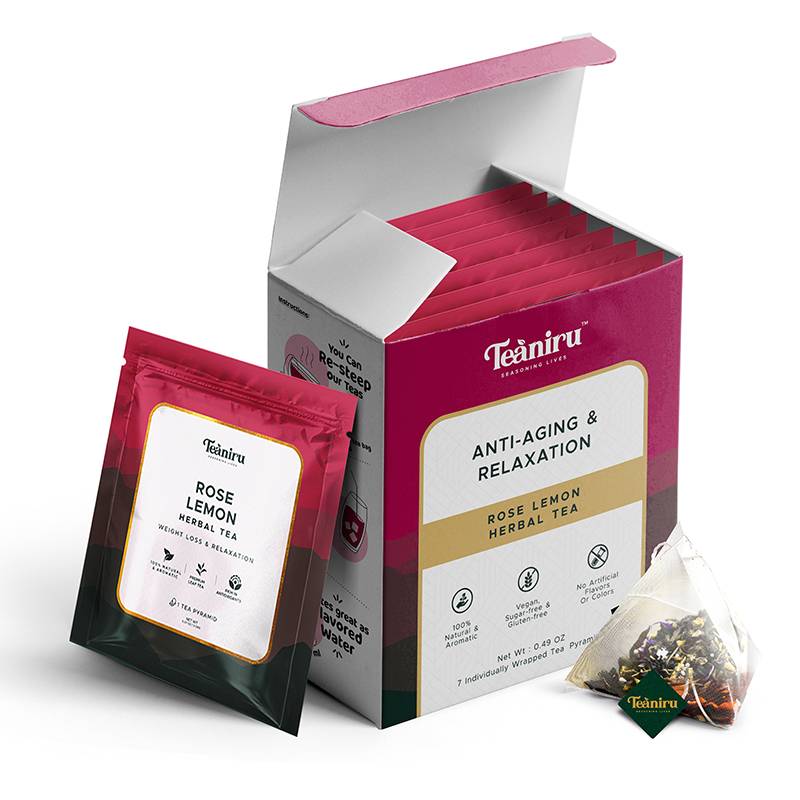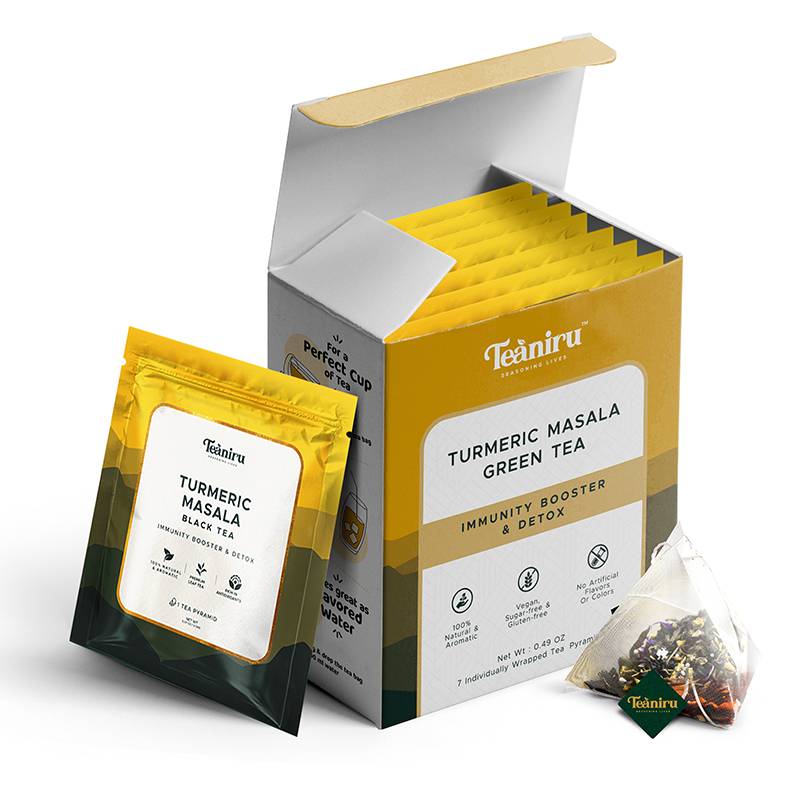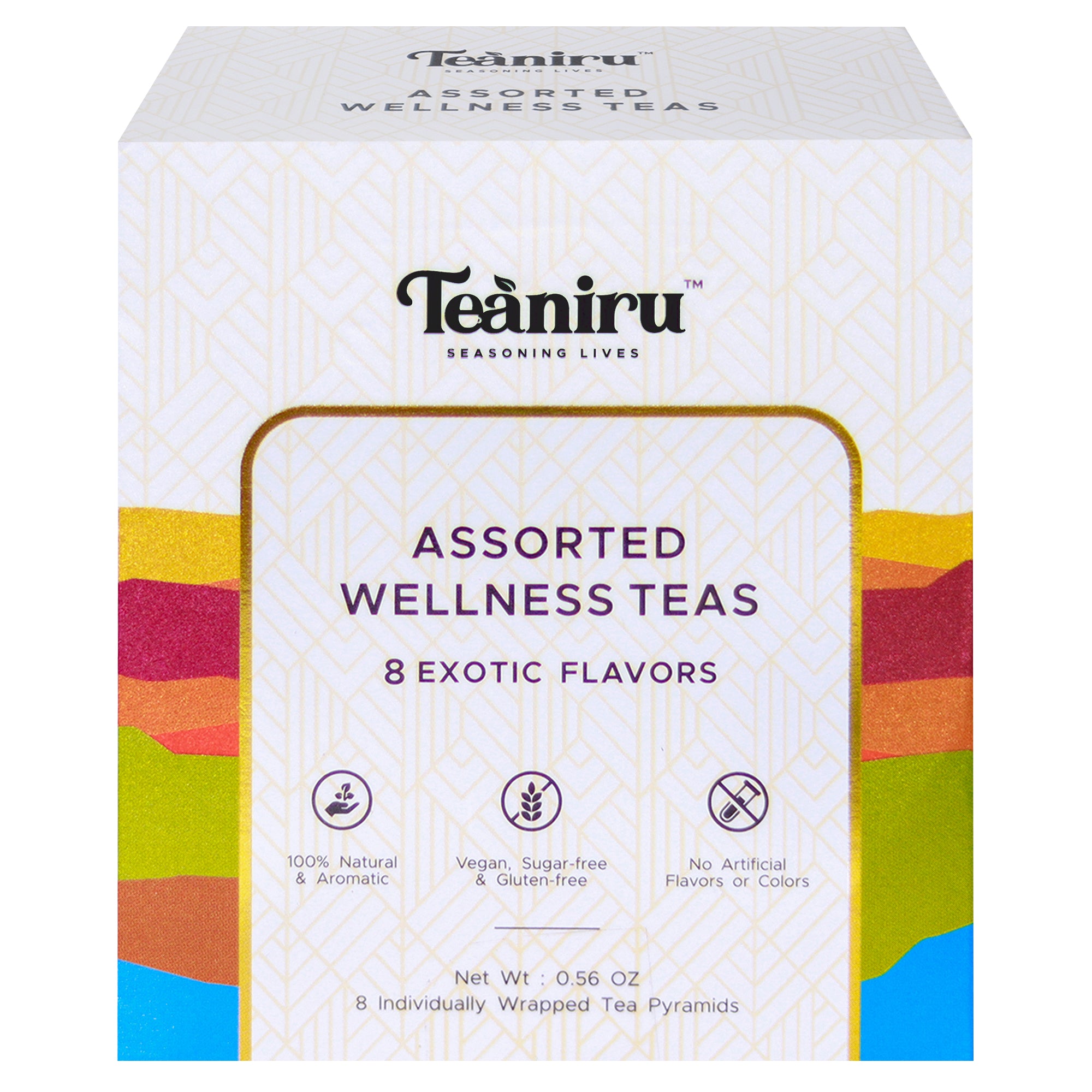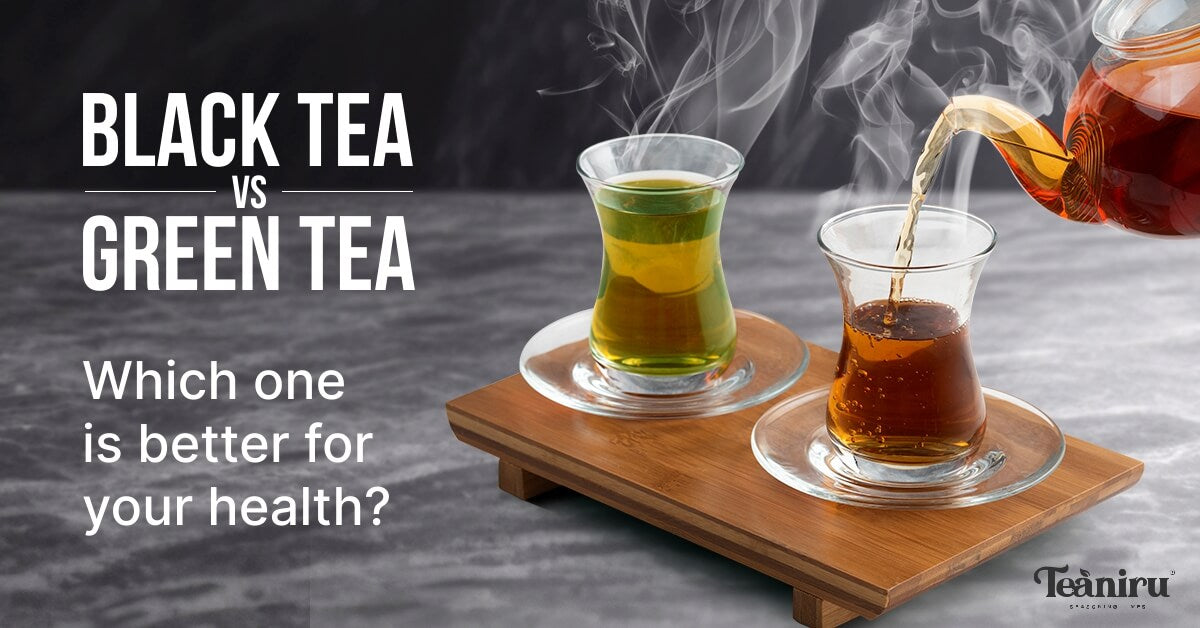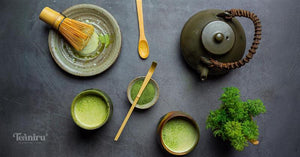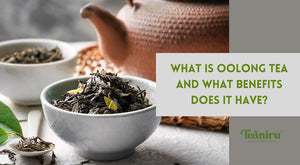You may also like
Hey Black tea and green tea lovers: are you confused about the origins, benefits, caffeine content, taste, and texture of each? And which one is better for you? It's time to untangle your doubts.
Due to their various tastes and benefits, both types of tea are becoming a growing trend worldwide.
Choose your team and Let's begin this healthy battle and see who's the title holder.
Get Set Go …
|
Black Tea |
Green Tea |
|
|
Plant |
Camellia sinensis |
Camellia sinensis |
|
Process |
Undergoes complete oxidizing method |
Undergoes minimal oxidizing method |
|
Appearance |
Red or Black |
Green or yellow |
|
Taste |
Rich and robust flavor |
Lighter and Fresh vegetal flavor |
|
Antioxidant content |
Less than green tea due to more processing, per serving 240 - 300 mg |
Yes, per serving 430-500 mg |
|
Caffeine content |
(50-90) mg per cup |
(40-50) mg per cup |
|
Acidity |
High |
Less |
Round 1:
The Real Difference - Black Tea VS Green Tea
The primary difference between black and green tea lies in their processing methods and the level of oxidation they undergo. Oxidation is a chemical reaction that occurs when tea leaves are exposed to oxygen, affecting their color, flavor, and aroma.
Black Tea
Full oxidation is a chemical reaction in tea leaves that alters the color, flavor, and aroma of the tea.
This process is also known as fermentation, where the enzymes break down complex compounds in the leaves, forming new compounds that give black tea its unique flavor and aroma.
It has a longer shelf life due to the stabilization and preservation of the leaves in the process of full oxidation and potential health benefits. .
Additionally, some studies suggest that black tea may have additional health benefits due to its higher levels of theaflavins and thearubigins, compounds formed during the oxidation process.
Green Tea
Minimal oxidation is a process where tea leaves are not fully oxidized with oxygen, resulting in a less intense chemical reaction.
This preserves the natural green color and retains the delicate flavor and aroma.
Minimal oxidation offers several benefits in tea production, including a delicate, subtle flavor, preservation of natural antioxidants, and lower caffeine content.
This makes it a popular choice among health-conscious consumers and a popular choice for those sensitive to caffeine.
Round 2:
The Difference in TAT: Texture, Taste, and Appearance
The taste and appearance of black and green tea are noticeably different, which contributes to their distinct appeal to tea drinkers.

Round 3:
Should we brew them differently?
Yes, both black and green teas differ in their brewing methods, maintaining specific water temperatures and brewing methods for tea is crucial for optimizing flavor and health benefits.
Different types of tea require different water temperatures to extract the best flavors and characteristics from the leaves.
For black tea, the water temperature should be between 190°F to 210°F (93°C to 100°C), while green tea requires a lower temperature of around 170°F to 180°F (76°C to 85°C). Steeping time is also important, with black tea requiring 3 to 5 minutes, while green tea has a shorter time of 1 to 3 minutes.
Using specific brewing methods ensures that tea leaves are adequately steeped and flavors are well-extracted, resulting in a more enjoyable cup of tea.
Using a teapot or tea infuser allows the tea leaves to expand and release their flavors fully while preheating the teapot or mug helps maintain the tea's temperature during the steeping process.
Consistency and reproducibility are also essential, as following specific temperatures and brewing methods consistently allows for better control over the tea's outcome and allows for adjustments to suit personal preferences.
Overall, maintaining the proper water temperature and brewing methods is essential for unlocking the full potential of tea leaves, resulting in a flavorful and satisfying cup of tea.
Round 4:
Caffeine Content in Black Tea Vs Green Tea
The caffeine content in black and green tea varies, with black tea generally containing higher levels of caffeine than green tea.

What makes black tea caffeine sound good?
Black tea contains caffeine, that’s a natural stimulant that offers numerous benefits and has a greater impact on your tea-drinking experience and your body. Let’s peep at what it has, shall we?
- Increases alertness,
- Focus,
- Energy,
- Antioxidants,
- Mental performance,
- Physical performance,
- Cardiovascular health,
- Mood enhancement.
- Caffeine in black tea provides an energy boost, combating fatigue and drowsiness.
- It also neutralizes harmful free radicals, potentially reducing the risk of chronic diseases.
- Regular consumption of black tea may also reduce the risk of heart disease and stroke.
- Additionally, caffeine may stimulate the release of neurotransmitters like dopamine and serotonin, promoting happiness and well-being.
Yay, Green Tea has caffeine, let's see how it works
Do you know, green tea contains a minimal amount of caffeine? Yay, let’s scoop out all the lesser-known facts about the caffeine content in green tea.
- Reduce the jittery effects
- Alertness
- Reduces the risk of Alzheimer's and Parkinson’s.
- Improves cognitive function
- Boosts metabolism
- Improves cardiovascular health
- Reduces cholesterol level
- Green tea also contains L-theanine synergy, which can reduce the jittery effects associated with caffeine consumption.
- Caffeine in green tea, which acts as a mild stimulant, promoting alertness and improving cognitive function.
- The combination of caffeine and catechins in green tea may boost metabolism and promote fat oxidation, which can be beneficial for weight management.
- Caffeine consumption in green tea has been linked to potential cardiovascular health benefits, such as reducing LDL cholesterol levels and improving blood vessel function.
- Research suggests that the polyphenols in green tea, along with caffeine, have neuroprotective properties, potentially reducing the risk of neurodegenerative diseases like Alzheimer's and Parkinson's.
Round 5:
The Showdown of Benefits: Black Tea Vs Green Tea
What is packed inside green tea?
Green tea is an excellent source of the potent antioxidant epigallocatechin-3-gallate (EGCG). EGCG is considered the most powerful of the green tea polyphenols, likely responsible for many of its health benefits. Potential benefits of EGCG include cancer prevention, Alzheimer's disease protection, anti-fatigue effects, liver protection, antimicrobial properties, and calming effects on the body.
What’s different inside black tea?
Black tea is unique in its content of theaflavins, polyphenols formed during oxidation. Theaflavins are known to offer various health benefits related to their antioxidant abilities, including the protection of fat cells from damage by free radicals, support for the body's natural antioxidant production, and potential improvement of blood vessel function and support for fat loss.
Shared Benefits of Black Tea and Green Tea
The Result
.. of The Healthy Battle: Which Tea Should be Prefered?
Now let's end this battle between black tea vs green tea by reviewing their strengths and weaknesses.
Black Tea
✅- Rich, bold flavor, a distinctive aroma,
✅- A longer shelf life than green tea
✅- Enough caffeine level that the body requires
✅- Most similar health benefits
❎- Longer Brew time compared to green tea
Green Tea
✅- Lighter and more delicate in taste
✅- Quick brew compared to black tea
✅- Minimal caffeine content with benefits for sensitive drinkers
✅- Most similar health benefits
❎- Shorter shelf life than black tea
What are the results?
You are the judge for this comparison since black and green tea both offer similar health benefits. Black and green tea have distinct health benefits, with black being known for its bold flavor and higher caffeine content, while green is praised for its delicate taste and antioxidants. The winner will ultimately depend on your preferences and needs.
If you'd like to better understand tea preferences, we suggest you try both black tea and green tea.
